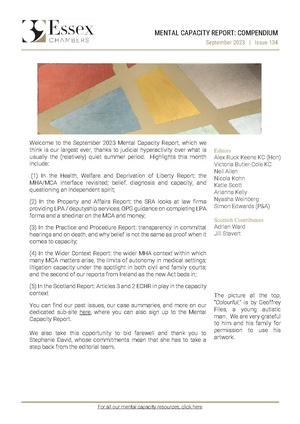| Display title | A NHS Trust v ST [2023] EWCOP 40 |
| Default sort key | A NHS Trust v ST (2023) EWCOP 40 |
| Page length (in bytes) | 1,789 |
| Page ID | 15241 |
| Page content language | en - English |
| Page content model | wikitext |
| Indexing by robots | Allowed |
| Number of redirects to this page | 0 |
| Counted as a content page | Yes |
| Page image |  |
| Edit | Allow only users with "editing" permission (infinite) |
| Move | Allow only users with "editing" permission (infinite) |
| Page creator | Jonathan (talk | contribs) |
| Date of page creation | 21:24, 10 September 2023 |
| Latest editor | Jonathan (talk | contribs) |
| Date of latest edit | 11:26, 10 October 2024 |
| Total number of edits | 4 |
| Total number of distinct authors | 1 |
| Recent number of edits (within past 90 days) | 2 |
| Recent number of distinct authors | 1 |
Description | Content |
Article description: (description)
This attribute controls the content of the description and og:description elements. | "The issues for determination at this hearing are ST’s capacity (i) to litigate and (ii) to make her own decisions in relation to future medical treatment. The Trust’s intention is to move to a treatment plan of palliative care. ... In terms of the functional test of capacity, a person’s ability to understand, use and weigh information as part of the process of making a decision depends on him or her believing that the information provided for these purposes is reliable and true. That proposition is grounded in objective logic and supported by case law in the context of both the common law and the interpretation of MCA 2005. ...In this context, and in terms of a patient-centred approach, it is important in my judgment for the court to consider the extent to which the information provided to a person is capable of being established objectively as a “fact” or a “truth”. The less certain the fact or truth, the more careful the court must be when determining whether the presumption of capacity is rebutted." |
